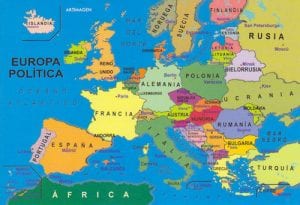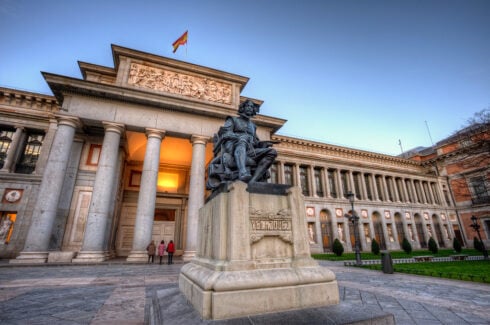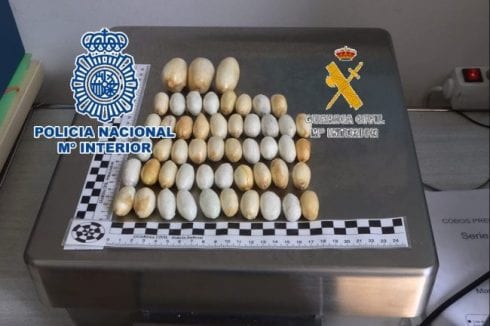WORLD Statistics Day today aims to show that good data and statistics are ‘indispensable for informed decision-making by all actors in society’.
The United Nations event is celebrated every five years and in a world of fake news, it’s probably more relevant than ever.
Below we have rounded up some surprising stats about Spain, some less vital than others but fascinating nonetheless.
Big player
THE Kingdom of Spain, as it’s officially known, is the second largest country in the EU – with an area of 505,955 square kilometres, Spain covers about 85% of the Iberian Peninsula, which it shares with Portugal.
Central government
Madrid is, as you probably know, the geographical centre of Spain. But if you want to get to the heart of the matter, stand in the city’s plaza Puerta del Sol and you’ll be in the exact centre of the country.

Strip tease
Nudity is legal in Spain – some say all the better to enjoy the country’s mainly Mediterranean climate with its hot dry summers, mild, rainy winters and more than 3,000 hours of sunlight a year. Spain also had the youngest marrying age in Europe before it changed the legal age from 14 to 16 years in 2015.
Reluctant taxmen
There is only one tax inspector for every 1,928 taxpayers in Spain, compared to one per 729 people in France. Hacienda says almost a third of the country’s GDP comes from the ‘black’ economy.
Culture clique
Spain has 44 UNESCO World Heritage Sites – prehistoric rock art, historic cities and buildings, bridges, national parks and landscapes. Only Italy with 49 sites, and China with 45, have more.
Vintage dining
You can enjoy a meal in the oldest restaurant in the world in Madrid. Although other restaurants claim to be older, the title has been awarded by the Guinness World Records to Restaurante Botín, a Hemingway favourite which has been open since 1725. The signature dish? Cochinillos asado (roast suckling pig).
Inventors galore
The first known stapler was made in the 18th century in the Basque country for the French King Louis XV – and every single staple was engraved with the royal emblem! Spain has also given the world the mop and bucket (1956), the forerunner of the modern cigarette (17th century) and the astronaut’s space suit (1935).
Bar hoppers
Spain has the second highest number of bars per inhabitants in the world. The only country that has more bars than Spain is Cyprus.
Bread heads
Most households buy fresh bread every day. Traditionally, they are long baguettes called barras or pistolas. Bread is present (and required) at almost every meal.
Royal lineage
The Spaniard Catherine of Aragon married Henry VIII of England. She was the first of his six wives and the mother of Queen Mary I.

Ancient tongues
Euskera, spoken by the Basque population in northern Spain and southern France, is one of the oldest living languages in the world.

Veggie heaven
Tomatoes, potatoes, avocadoes, tobacco, and cacao (for chocolate) were all imported into Europe by Spain via its colonies.
First to fry
The Spanish (in particular those from Cadiz) claim that they invented fried fish. In the 18th century Britain had ties with Cadiz, therefore it is believed that the English took the idea of fish ‘n’ chips from Spain. However, other sources claim the Portuguese and Belgians invented it.
Gold spice
Spain is one of the world’s biggest producers of saffron, an important ingredient in paella.

Tunnel vision
The Madrid subway is the second largest underground system in Europe and the sixth largest system in the world. It has 141 miles of track and is still growing.
Nippers and tuckers
Spain is the third country in the world, after the US and Brazil, with the most plastic surgery interventions per capita in the world.
Spare parts
Spain is the number one country for organ donations in the world.
Green giant
Spain was the first country in the world where wind power became the greatest source of electricity. Red Eléctrica de España (REE), operators of Spain’s electricity system, revealed that in 2013, wind turbines generated over just under 54,000 gigawatt hours of electricity – a fifth of the nation’s usage.
Click here to read more News from The Olive Press.



















